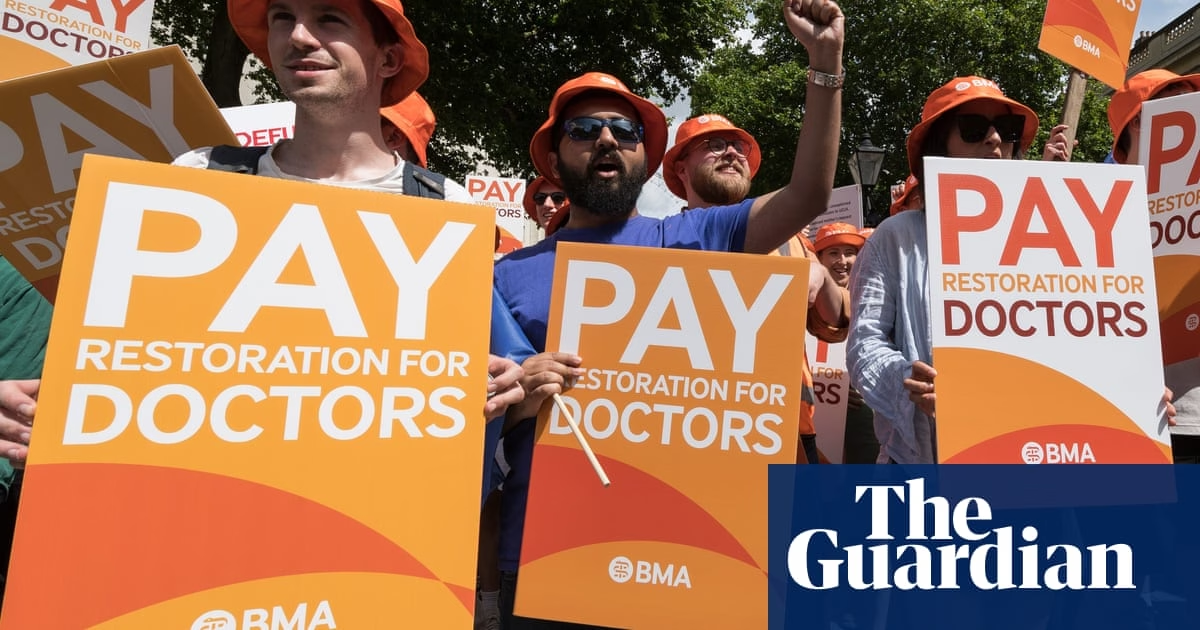Hospitals are preparing for potential strikes by resident doctors who are demanding a 29% salary increase. NHS leaders are concerned that if a ballot of resident doctors, which concludes on Monday, results in a majority vote for industrial action, it could lead to significant disruptions, including the cancellation of hundreds of thousands of appointments and procedures. In 2023-2024, junior doctors staged strikes for 44 days, resulting in widespread cancellations. The Labour government, which came to power last year, initially granted a 22% pay rise to end the stoppages, but resident doctors are now demanding six months of strikes, starting this month and extending into next winter, following a 5.4% pay rise for this year. The British Medical Association deems the latest pay offer as “derisory” and insists on a 29% increase to restore salaries after a 23% decline in value since 2008. The outcome of the ballot, expected on Tuesday, could impact the government’s pledge to clear the backlog of hospital treatments and restore waiting-time targets. Health Secretary Wes Streeting is urging doctors to avoid strikes, emphasizing the need to prevent a cycle of standoffs and cancellations. Other stakeholders, including NHS Employers and the Patients Association, also express concerns about the potential negative impact on the NHS and patients. The situation is complicated by Dr. Ross Nieuwoudt’s statement that resident doctors are “excited” about the prospect of striking again. They argue that voting for strikes is crucial to press the government for salary adjustments. The NHS Providers’ CEO, Daniel Elkeles, notes that strikes divert attention away from improving patient care. The Department of Health and Social Care emphasizes its commitment to improving resident doctors’ conditions and its efforts to reduce bureaucracy in the health service.
Source: https://www.theguardian.com/society/2025/jul/07/nhs-bosses-fear-fresh-strikes-england-resident-doctors-seek-29-per-cent-pay-rise








